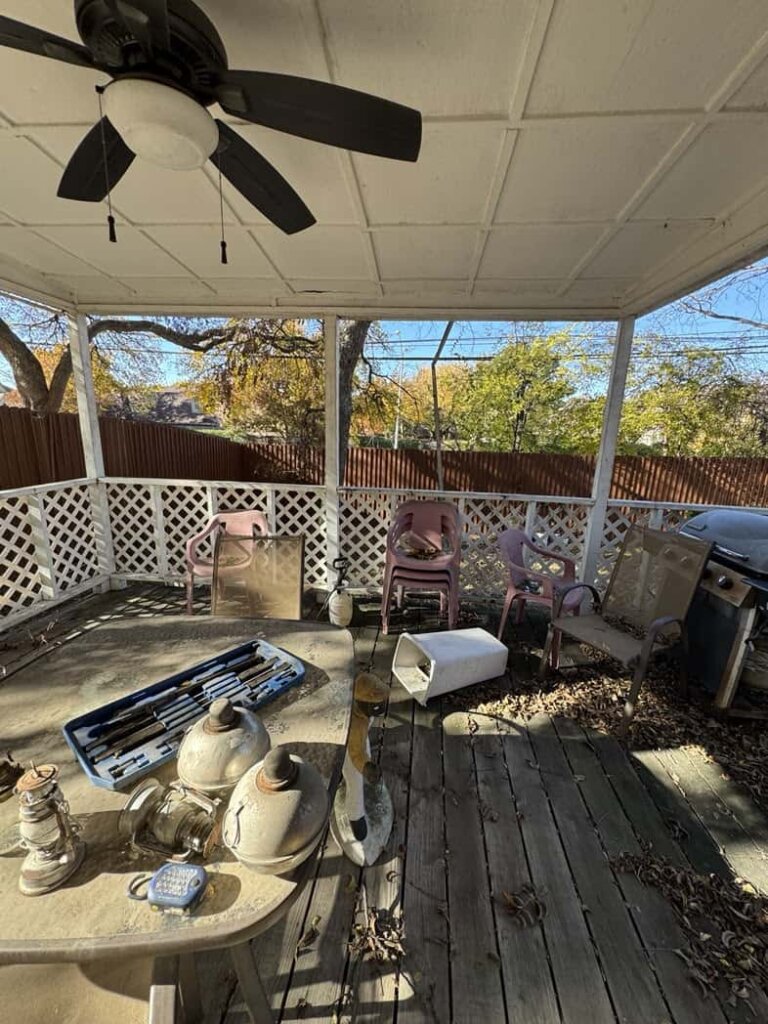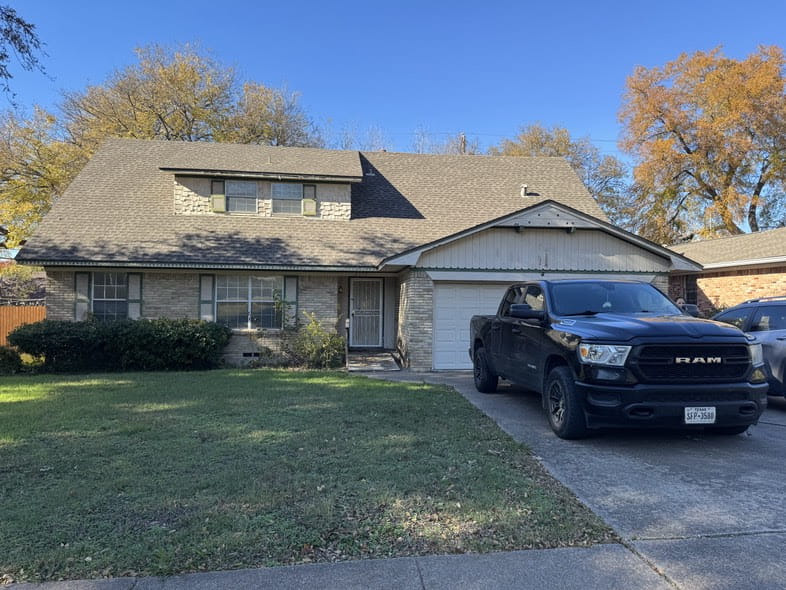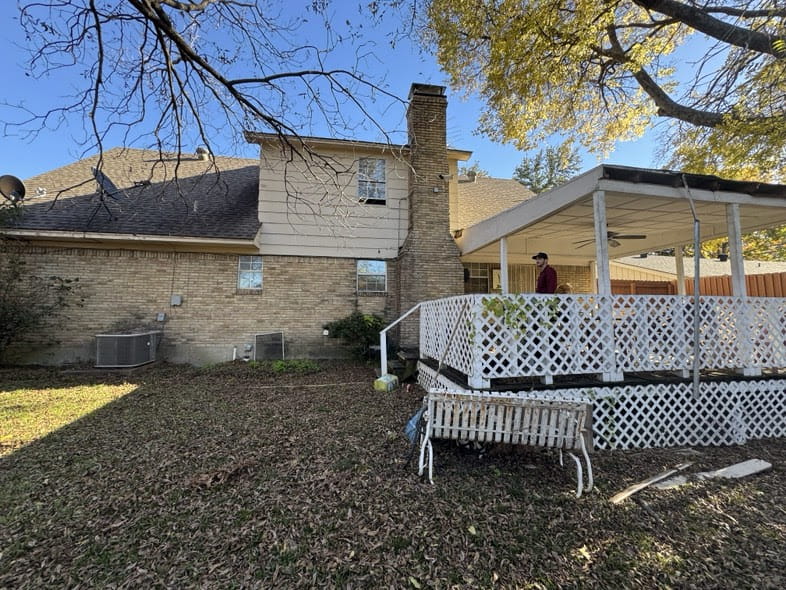When a loved one passes away, dealing with their property can be an emotional and overwhelming task, especially when it comes to selling their house. In Texas, the probate process is typically required to transfer ownership of a deceased person’s property. Probate ensures that debts are settled and assets are distributed according to the will (or state law if there is no will). However, the process can be lengthy, expensive, and complicated, often leaving family members feeling burdened during an already difficult time.
The good news is that in some cases, you may be able to sell a deceased parent’s house without going through probate. There are specific circumstances and legal mechanisms that can allow for a quicker sale. In the DFW area, certain exceptions exist where you may be able to bypass probate altogether or at least minimize its impact. This article will guide you through the options available to you, helping you understand the steps involved and how to proceed with selling the property with less stress and fewer legal hurdles.
Understanding Probate in Texas
Probate is the legal process of validating a will and distributing assets after someone passes away. In Texas, probate can be:
- Relatively simple compared to other states
- Time-consuming (typically 6 months to a year)
- Expensive (court costs, attorney fees, executor fees)
However, there are legitimate ways to sell my deceased parents house while avoiding or simplifying this process.
Selling a House Before and During Probate
Selling a house before and during probate can have different implications for the heirs of an estate. Understanding these differences can help families make informed decisions about real property transactions.
Selling Before Probate
Selling a house before probate is possible in certain situations, especially if the estate qualifies as a “small estate” under Texas law. If the deceased person’s assets are minimal and there is no need for a formal probate process, the heirs may be able to sell the property without going through probate. In these cases, the property can be transferred to the heirs through an Affidavit of Heirship. This allows you to sell the house quickly without the involvement of the court. Selling before probate can be a great option if you’re looking to avoid lengthy legal processes and handle things faster. As Cash House Buyers DFW, we can work with you to buy the property directly, even before probate is finalized, ensuring a simple, straightforward sale
Selling During Probate
If the property is in probate, the process of selling it becomes a bit more complicated, but it is still possible. During probate, the court oversees the distribution of the deceased person’s assets, and the property is often in the name of the estate. To sell the house, the court may need to approve the sale, and the executor or administrator of the estate must follow certain legal steps. This may include obtaining permission from the court or providing notice to heirs. Cash House Buyers DFW simplifies this process by working directly with you and handling any required court filings and approvals, so you can sell your home quickly without worrying about the legal details. We’re experienced in navigating probate sales, and we make the process as seamless as possible, even during probate.
Texas-Specific Laws on Selling a Deceased Parent’s House
Texas has unique laws that influence how real estate, inheritance, and probate are handled, and these can significantly impact homeowners in the DFW area. Understanding these laws is essential when selling a deceased parent’s house. Let’s break down the key Texas laws that apply to property sales during probate or without probate.
1. Texas Probate Process: The Role of the Court
- Independent Administration: In Texas, an independent administration allows the executor or personal representative of the estate to manage the property and assets without court supervision. This option speeds up the probate process and can simplify the sale of the property.
- Dependent Administration: If an independent administration isn’t possible, the estate must undergo dependent administration, which requires court approval for actions like selling property. This process is more time-consuming and may delay the sale.
- Texas Estates Code: The Estates Code governs how probate proceedings are handled in Texas. Understanding this code is crucial for heirs and beneficiaries to ensure that property is sold in accordance with state law.
2. Transfer on Death Deed (TODD)
- Property Transfer Without Probate: Texas allows homeowners to designate beneficiaries for their property through a Transfer on Death Deed (TODD). This legal instrument enables the property to be transferred directly to the beneficiary without the need for probate. A TODD must be filed before the homeowner’s death and can be an efficient way to bypass the probate process for certain real estate.
- Unique to Texas: Texas is one of the few states that allows TODDs for real estate, which makes it easier for homeowners to pass on their property without the legal complexities of probate.
3. Affidavit of Heirship
- Simplified Property Transfer for Intestate Estates: If a deceased parent did not have a will, heirs in Texas can use an Affidavit of Heirship to establish their right to inherit the property. This document is typically signed by individuals who knew the decedent and can testify to the family relationship.
- No Need for Probate: The Affidavit of Heirship allows heirs to transfer ownership of the property and sell it without probate, as long as there is no dispute among the heirs or other legal challenges.
4. Homestead Protection
- Texas Homestead Laws: Texas has strong homestead protection laws that can affect the sale of property in probate. A surviving spouse or dependent children may have rights to remain in the home for a certain period, even if the property is part of the estate.
- Exemption from Creditors: Texas law protects homesteads from most creditors, making it harder for them to seize the property to settle debts. This protection can also complicate selling the property during probate, as the heirs may need to resolve any outstanding debts before proceeding with a sale.
5. Small Estate Affidavit
- Bypassing Probate: If the total value of the estate (including real estate) is under $75,000, Texas law allows heirs to use a Small Estate Affidavit to avoid the formal probate process. This affidavit can be filed with the county clerk, allowing heirs to transfer the property and sell it without going through the lengthy and costly probate court process.
- Eligibility: To use this option, the estate must meet the specific value requirements, and no real property can be subject to a secured debt or lien. It’s an ideal solution for smaller estates.
6. Property Taxes and Liens
- Outstanding Taxes: In Texas, property taxes are often due even after the property owner’s death. If there are unpaid taxes, they can create a lien on the property, which must be addressed before the property can be sold. These taxes must either be paid or negotiated with the taxing authority.
- Heirs’ Responsibility: Heirs may be personally liable for unpaid taxes, especially if they inherit property through probate or an affidavit of heirship. Understanding the tax implications is crucial when selling a property after the death of a parent.
7. Texas Real Estate Law for Inherited Property
- Selling Inherited Property: Texas allows heirs to sell inherited property without probate if the proper paperwork is in order (e.g., affidavit of heirship, small estate affidavit). However, certain requirements must be met, including proper title transfer and potential court approval.
- Title Issues: Inherited property can have title issues that need to be cleared before the sale. These might include outstanding liens, unclear ownership, or disputes among heirs. It’s essential to address these issues to avoid delays in the selling process.
Best Way To Sell: Property Investors (Cash House Buyers)
When dealing with inherited property, especially when facing the question “Can I sell my deceased parents house without probate,” working with a cash buyer offers several advantages:
- Faster closing – Cash buyers can often close in weeks or even days, which is helpful when managing an estate
- As-is purchases – No need to invest in repairs or updates to the property
- Simplified process – Fewer contingencies and complications
- Reduced holding costs – Minimize ongoing expenses like mortgage, taxes, and maintenance
Property investors, such as Cash House Buyers DFW, can also provide quick sale solutions. They often buy houses as-is and can close quickly with all-cash offers. These options offer speed and simplicity.
Simple Process: No Legal Hassles When You Sell to Us
If you work with us, the legal processes tied to selling a home, especially during probate, won’t be an issue. When selling to us, you don’t have to go through the usual legal hurdles as we do not require the lengthy and tedious probate process. If any legal work needs to be done, we take care of everything on our side so you do not have to navigate through the legal process. As a result, you do not need to worry about attorneys and mountains of documents which slows down the process, thus allowing the sale to happen faster and simpler. Let us worry about the legal paperwork while you focus on what lies ahead without the other weight on your shoulders.
How Do I Sell My Deceased Parents House?
Many people are asking “Can I Sell My Deceased Parents House Without Probate?” The answer is yes. At Cash House Buyers DFW, we have purchased probate properties before and assisted numerous homeowners with selling their homes without going through the full probate process. We recently dealt with a similar case in which we assisted a family in selling their deceased parent’s house without probate. You can read more about this real-life case in our Case Study, where we outline the steps we took and how we helped Jacob and Olivia with an inherited house and achieved a smooth sale.






If you’re dealing with a similar situation, we’re here to help. Simply fill out the quick form below with your property information, and we will get in touch to discuss your options and provide guidance throughout the process. Let us make this difficult time easier for you by offering a fast, straightforward solution for selling your home.
Note: The information provided in this post is for informational and educational purposes only. This post does not constitute legal or financial advice and should not be used as a substitute for speaking with an attorney or CPA. Readers should contact an attorney or CPA for advice on any particular legal or financial matter.
